
The summary article presents key findings from the Mutual Learning Exercise on Industrial Decarbonisation. Over the course of 12 months, a panel of experts developed recommendations to help policymakers update their strategies and roadmaps for low-carbon technologies in industry.
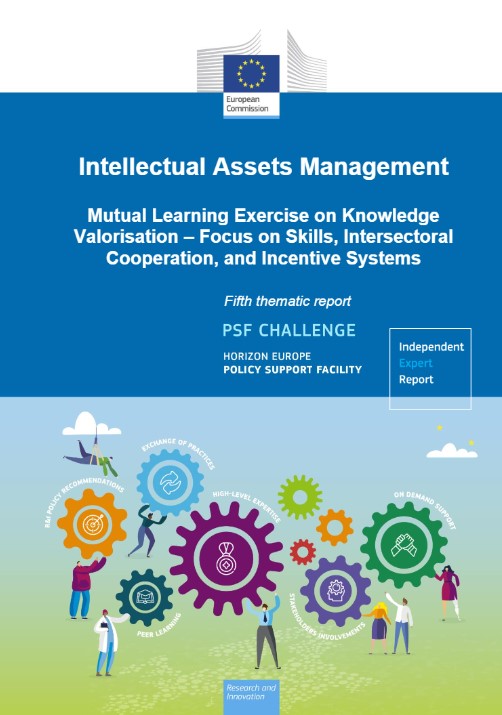
This report explores the shift from traditional intellectual property (IP) protection to broader intellectual asset management in R&I. It addresses the "why" and "how" of this change, offering recommendations for policymakers. The report starts with the legal framework and explores diverse stakeholder viewpoints, advocating an open approach to managing intellectual assets while acknowledging current challenges.
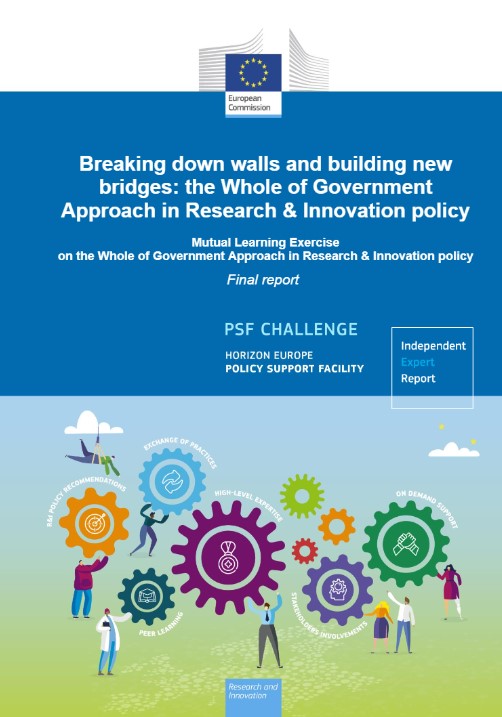
The Final Report summarises the Mutual Learning Exercise (MLE) on the Whole of Government Approaches (WGA) for research and innovation policy. The MLE explored WGA's role in tackling complex challenges linked to the Sustainable Development Goals. The report includes a list of WGA tools and good practices for applying in various policy contexts.
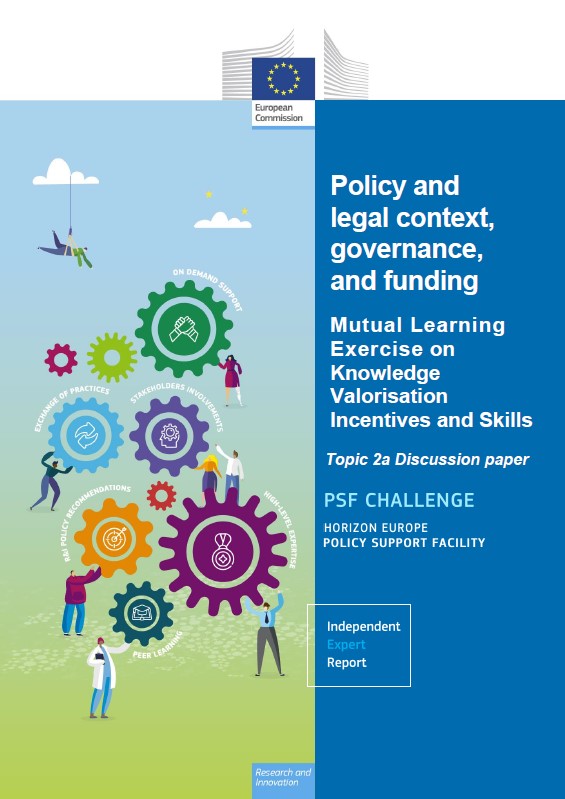
The Discussion Paper explores the policy and legal landscape for fostering knowledge valorisation in R&I. It focusses on the key national support mechanisms, such as funding, regulations, and soft instruments, highlighting the importance of a collaborative ecosystem for maximizing research impact.
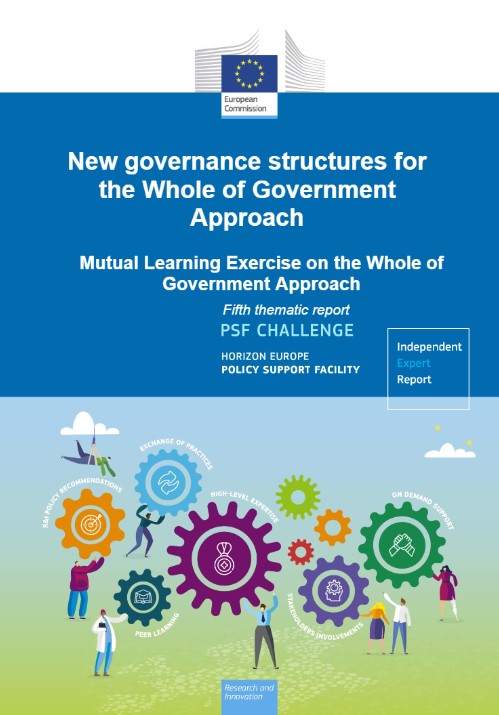
This thematic report analyses new governance structures for a whole of government approach (WGA) for R&I policies. It summarises the success factors and challenges for WGA in general. It then presents some observations on governance of R&I policies specifically and concludes with some findings about mission-oriented innovation policies, a specific form of WGA in the R&I field.
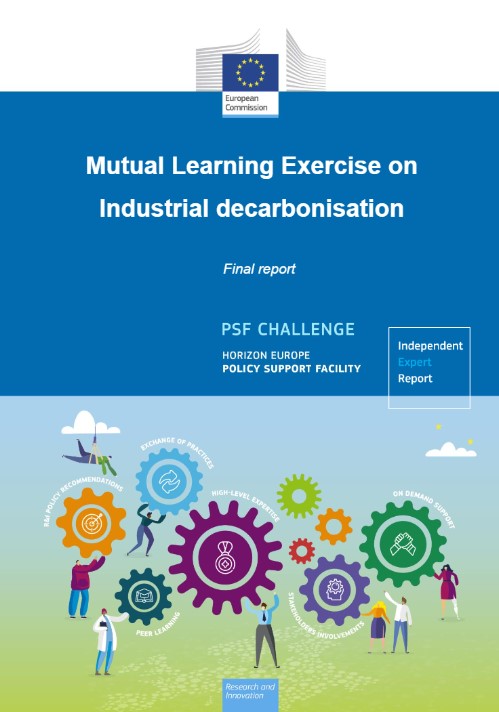
This report analyses challenges and opportunities for reducing carbon emissions in Europe's energy-intensive industries. It explores the lessons learnt and challenges from twelve countries to identify solutions and emphasises the need for collaboration to address energy supply issues. The report calls for faster adoption of low-carbon technologies and stable regulations to attract investment. It highlights the importance of a unified approach across Europe to achieve a sustainable and low-carbon industrial future.
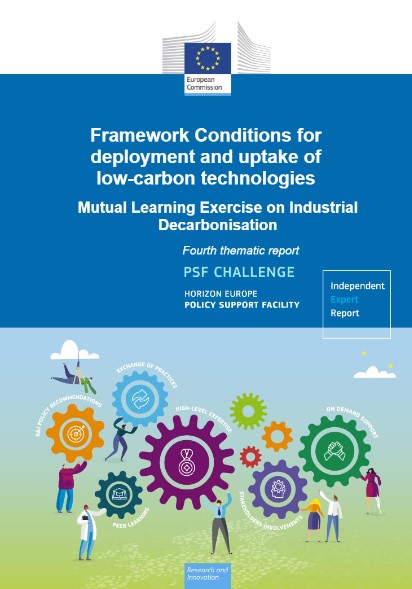
This Mutual Learning Exercise report on industrial decarbonisation, drawing on insights from 12 countries, explores key conditions needed for adopting and innovating low-carbon technologies in energy-intensive industries. It describes the importance of stable regulations, innovative financing options, and improved technology infrastructure & data sharing to speed up deployment of research & innovation solutions.
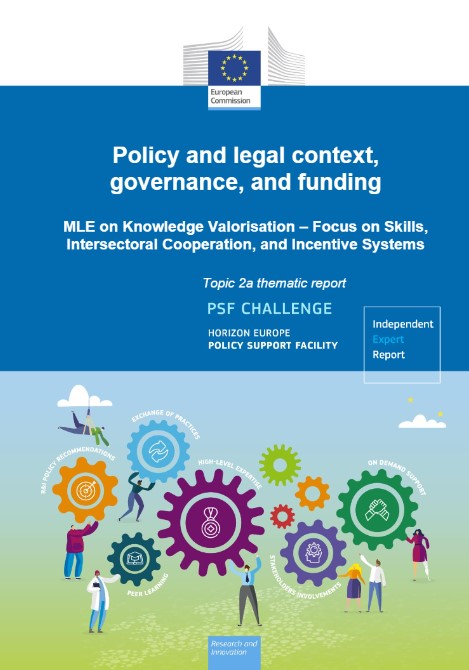
The Thematic Report focus on the lessons learned from discussions of the MLE on knowledge valorisation on policy and legal context, governance, and funding. The report highlights the critical importance of aligning a long-term strategic vision and goals with supporting tools for knowledge valorisation, including financial schemes, regulatory frameworks, and soft instruments.

The report focusses on the insights gained from the Topic 4 MLE meeting held in Helsinki, concentrating on multi-stakeholder networks and processes for knowledge valorisation. The report highlights the need for fostering multi-stakeholder networks to address regional, national, and European interests and discusses the important role of the public sector/authorities in building and maintaining those networks.
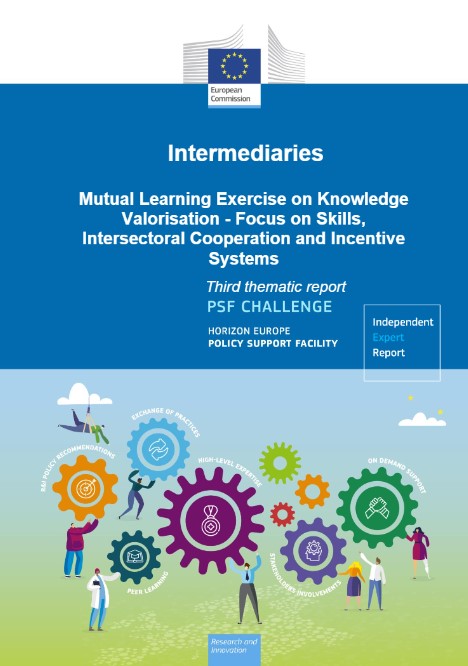
This report outlines knowledge valorisation intermediaries, explaining their role in open ecosystems and multi-actor perspectives. It explores the intermediary organisations as key players in knowledge valorisation, surveys existing intermediaries, describes new approaches and models used by both traditional and innovative intermediaries, and examines major policy implementation challenges.
